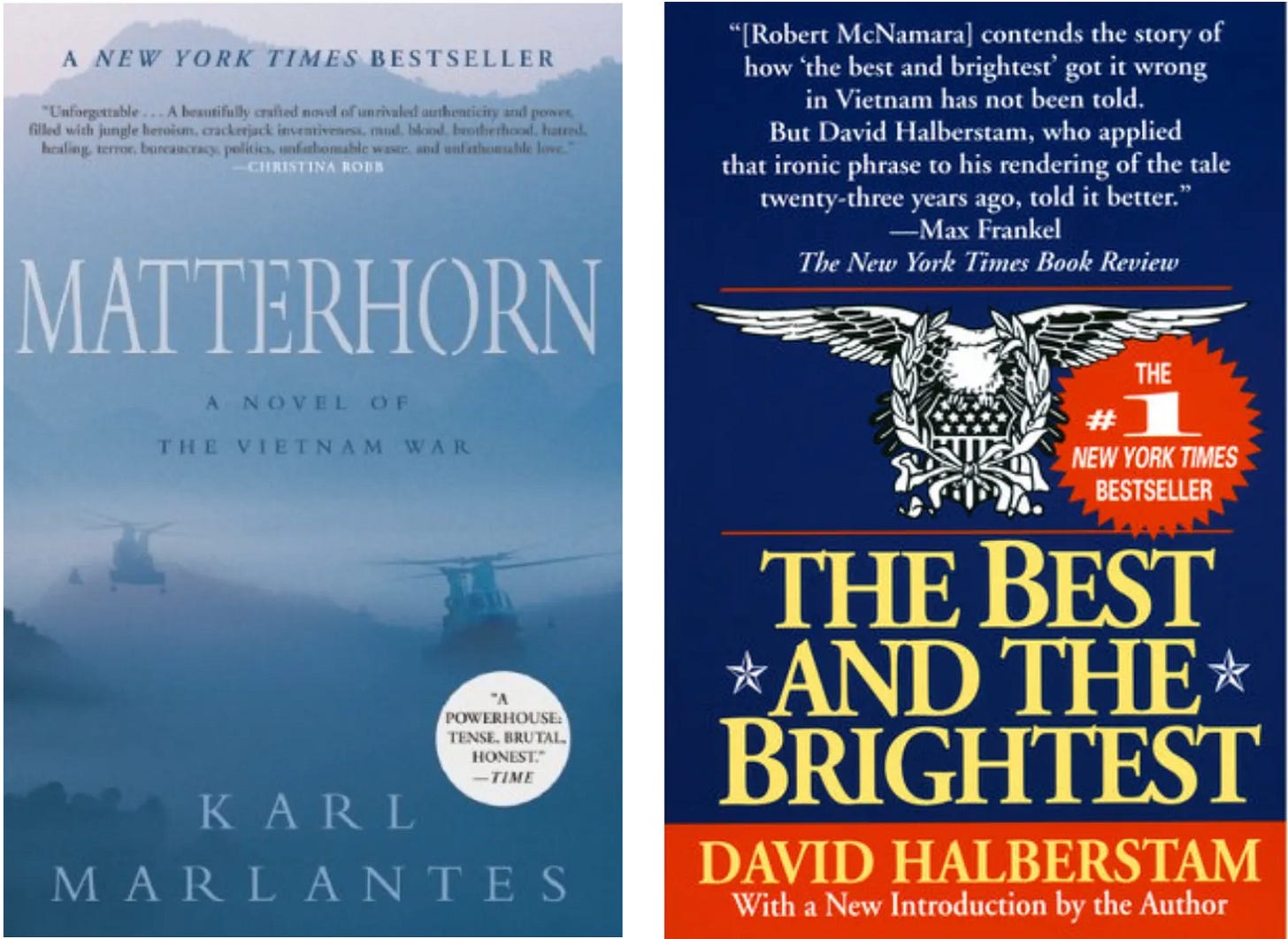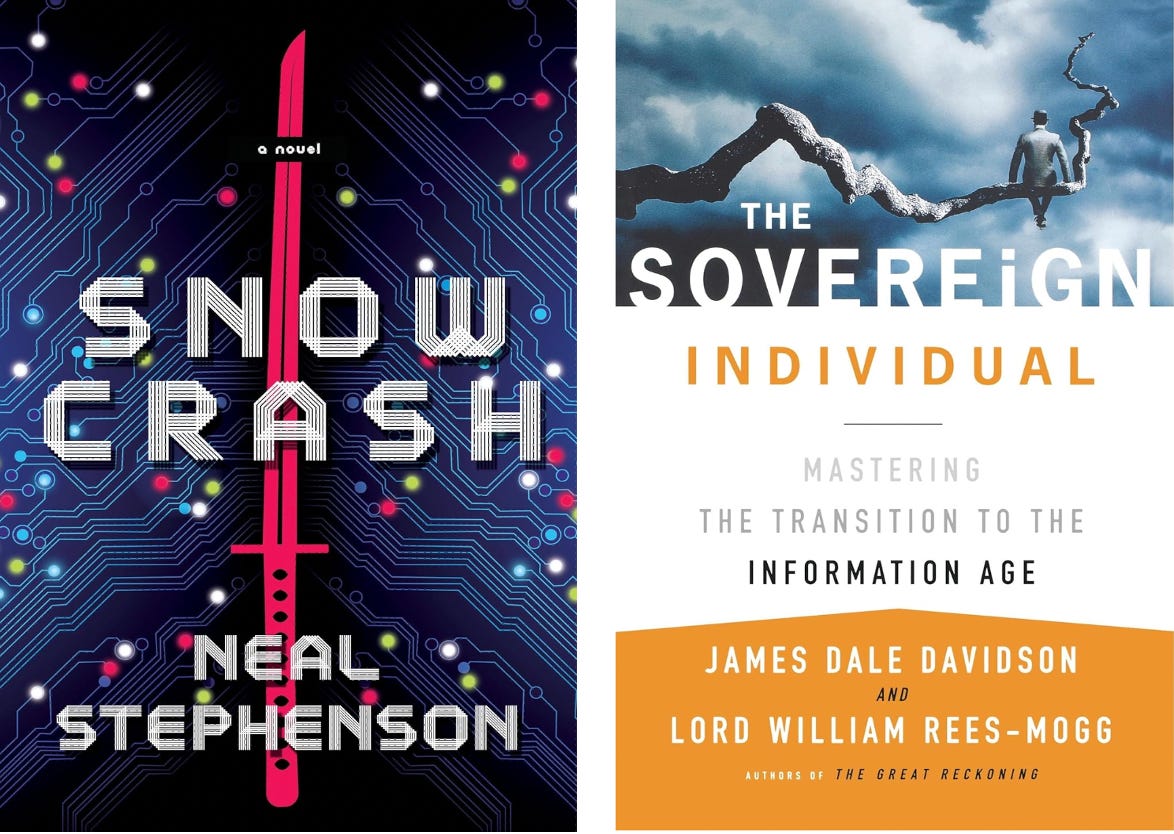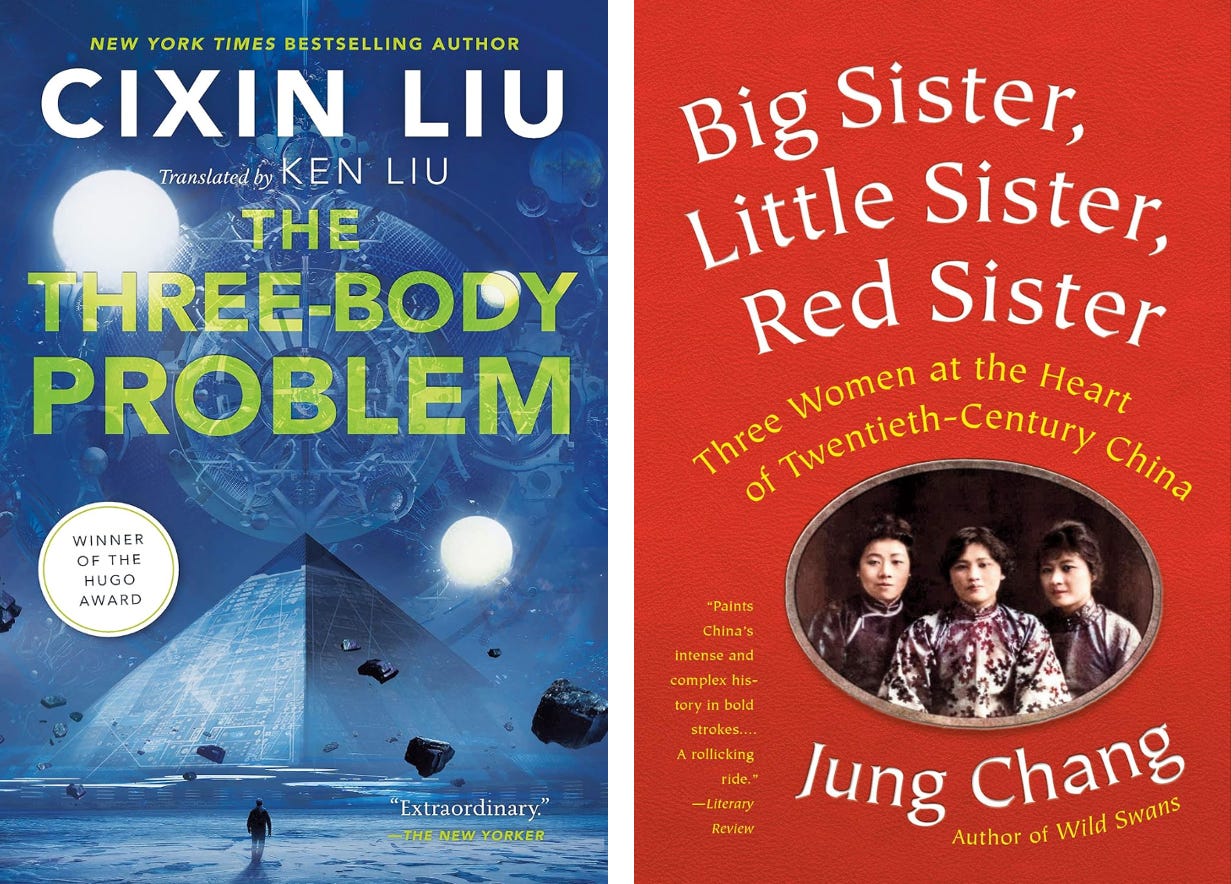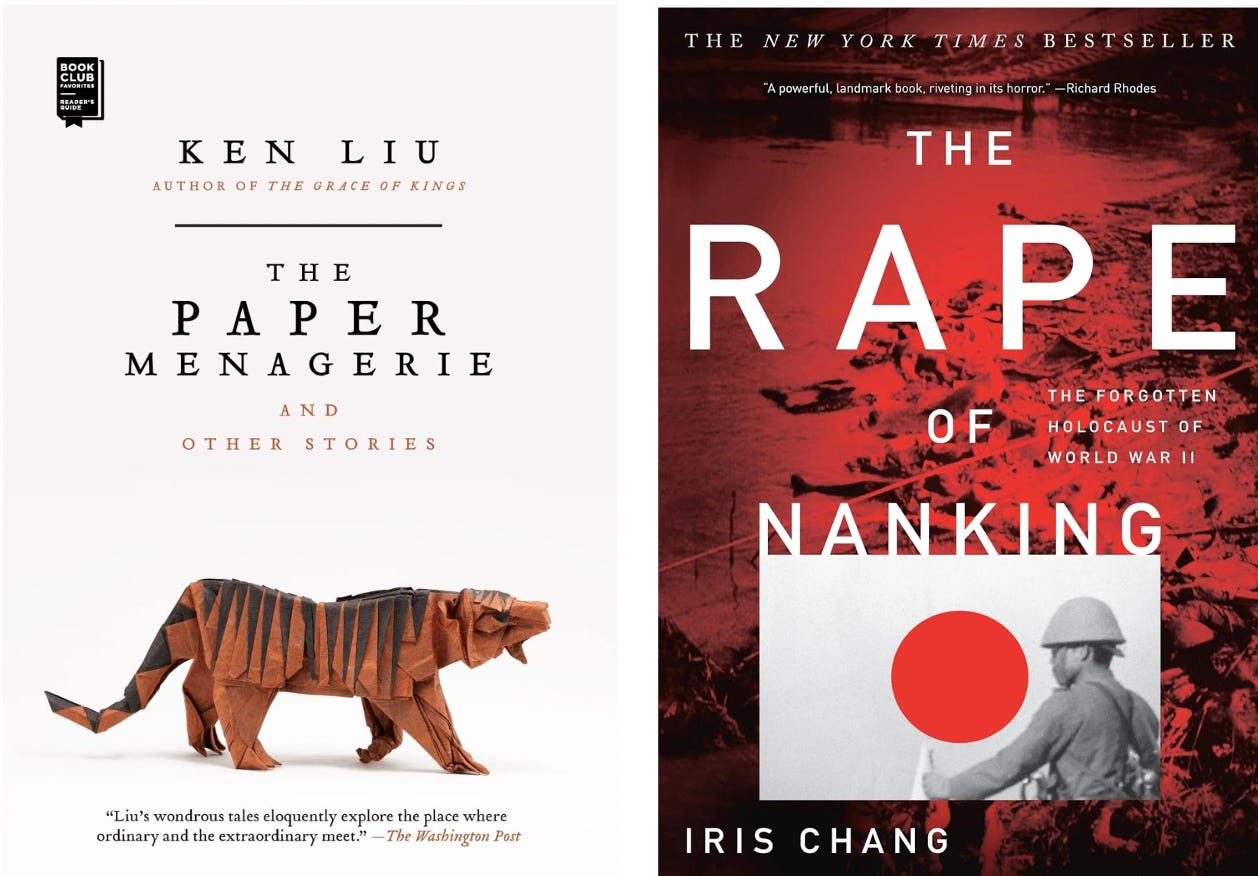Fiction/Nonfiction Book Pairings
This is my favorite way to read
Fiction is an undervalued resource for learning about a time or a place. Its biggest virtue is its ability to provide the emotional hook that makes a person interested in a topic in the first place. Formal education over-indexes on starting with facts, when factual accounts would often be better served following fiction. With these book recommendations, I hope you find joy pairing fiction with nonfiction. Please add your additions in the comments!
Matterhorn / The Best and the Brightest
“Modern classic” gets thrown around a lot to describe fiction that is most decidedly not that, but Mattherhorn deserves the epithet. This emotional Vietnam combat epic follows young Marine lieutenant Waino Mellas through 700 pages of blood and jungle. Published in 2009, it took author Marlantes 35 years to write his debut novel based on his own Vietnam experience. I can’t improve upon journalist Christina Robb’s review of the book as a story of “unfathomable waste and unfathomable love.”
Matterhorn serves as a violent contrast to the sterile, bureaucratic war prosecuted by the technocratic elites in Washington, as documented in The Best and the Brightest (1972). Halberstam provides Robert Caro-esque studies of power of the usual suspects (e.g., LBJ, McNamara) but also JFK, Dean Rusk, the Bundys, Averell Harriman, and more. Prep schools, Ivy league degrees, and/or proper family lineages pepper the background of most of these actors. It’s a timely reminder that the possession of credentials does not imply the possession of decision making skills — often just the opposite.
Snow Crash / The Sovereign Individual
Both of these books explore the premise that the nation-state is not our final form of governance. In their worlds, the Internet, cryptocurrency, and the metaverse break the backs of extortionary states around the world and empower decentralized infrastructure, affecting everything from traditional media to our current ideas of sovereignty and how we wage war. Most notably, governments will collapse and private corporations and entrepreneurs will instead franchise sovereignty and compete for citizens. These books are held in high regard by the tech community for writing cogently in the 1990s about technology that did not yet exist or was very nascent.
Snow Crash (1992) is science fiction, and Stephenson explores a serious topic with satire. We follow our protagonist — literally Hiro Protagonist — as he tries to understand a mysterious computer virus while delivering pizza for the now-corporate American Mafia. The Sovereign Individual (1997) explores the collapse of the nation-state with the utmost seriousness and does not shy away from bold claims like “there will be no more conflicts like WWII.” I disagree with at least half of the arguments, but it’s worth a read if you want to understand the world view of Silicon Valley (it’s one of Peter Thiel’s favorite books and he wrote the foreword for the 2020 re-print).
The Three Body Problem / Big Sister, Little Sister, Red Sister
What could cause a person to become so disgusted with humanity she would betray her own kind to a powerful alien species hell-bent on obliterating homo sapiens? China’s Cultural Revolution, answers author Cixin Liu. The opening pages of The Three Body Problem (2008) find Ye Wenjie witnessing her father, a “reactionary” physics professor, being beaten to death by four teenage girls during a public inquisition led by her mother. Mao’s China serves as a powerful framing device that propels forth the most compelling science fiction book of the last 15 years and one of China’s only successful cultural exports to the West.
The Three Body Problem is the book that made me interested in 20th century Chinese history and revealed to me that my public school education dropped the ball on this subject. Jung Chang’s very accessible Big Sister, Little Sister, Red Sister: Three Women at the Heart of Twentieth-Century China (2019) is a good place to start. Learn about Sun Yat-sen, Chaing Kai-shek, and Mao Zedong through the lens of the Soong sisters, who formed various marital and political alliances with these men. I promise your family’s most contentious Thanksgiving political fights will pale in comparison to the ideological differences between Mao’s vice chair and Chiang Kai-shek’s wife.
The Paper Menagerie (“The Man Who Ended History”) / The Rape of Nanking
The English translator for TheThree Body Problem, Ken Liu, proved himself to be a talented science fiction writer in his own right with his 2011 short story collection, The Paper Menagerie. I especially recommend “The Man Who Ended History”, which explores the implications of a breakthrough in particle physics that allows a human to experience a particular place at a particular time, after which no one can ever go back there again. The researchers prioritize sending observers to the Japanese Biological Warfare Unit 731 (“Asia’s Auschwitz”) in Pingfang, where the Japanese Imperial Army performed gruesome experiments on primarily Chinese civilians but also Allied prisoners during the Second Sino-Japanese War and World War II. Some 200k-300k people were killed in Japan’s quest to develop biological weapons, and the Japanese burned the compound down at the end of the war.
I had never heard of Unit 731 and subsequently became interested in other Japanese atrocities perpetrated by the Imperial Army around the same time period. This led me to Iris Chang’s The Rape of Nanking (1997), a concise but harrowing account of the war crimes committed against Chinese civilians over a six week period in 1937. Nanking was then the capital of China, and Japanese General Matsui Iwane ordered the city destroyed.
And on that gloomy note, I’m feeling especially grateful to be living in America in the 21st century. I hope you get to spend quality time with your loved ones and read lots of books this holiday season. I can’t wait to share more Kinetic content with you in 2024.






This is awesome. I have not thought about pairing them up like this. Thanks for the tip!